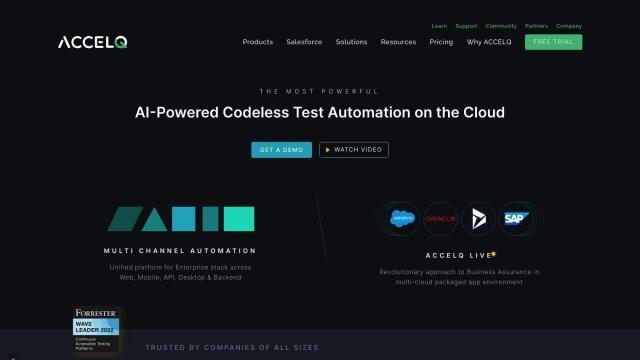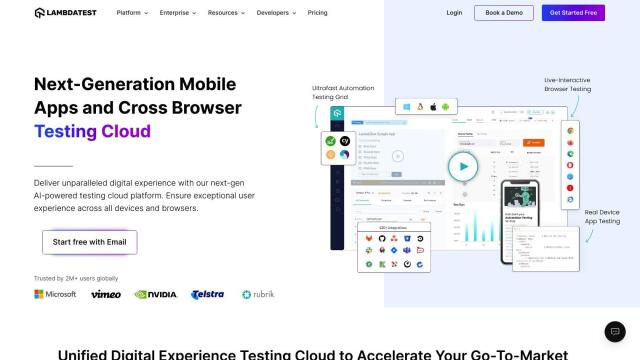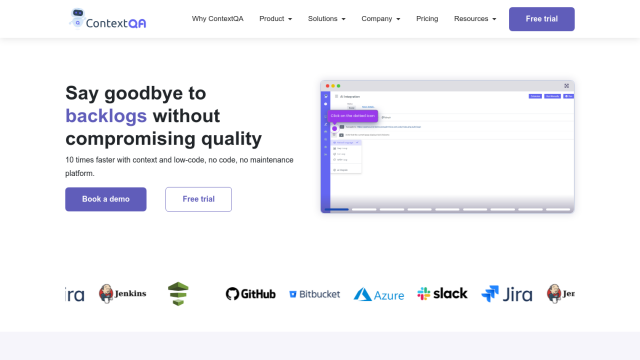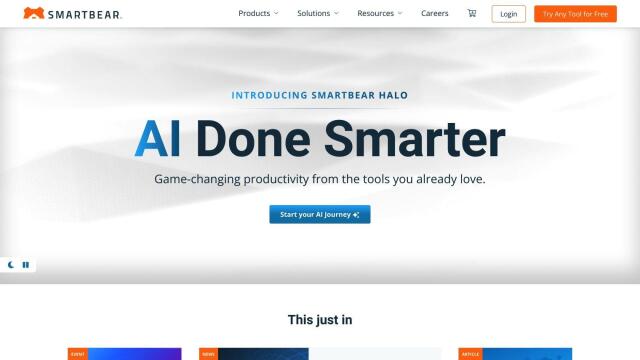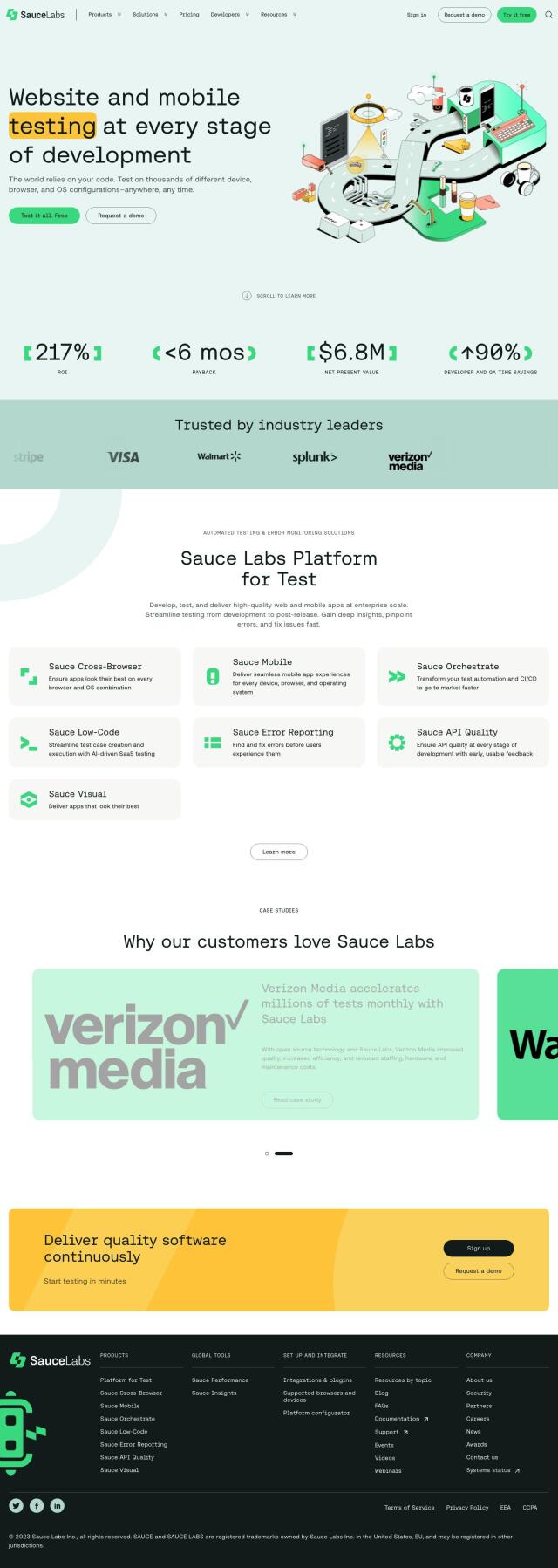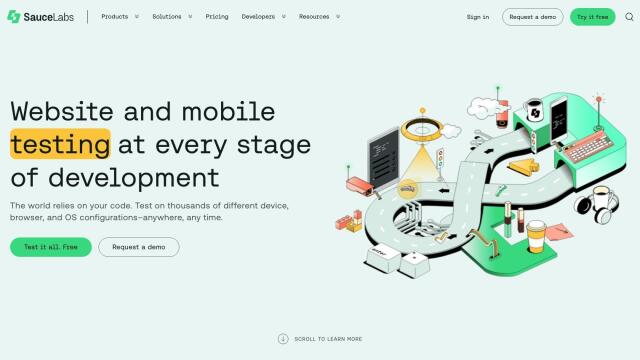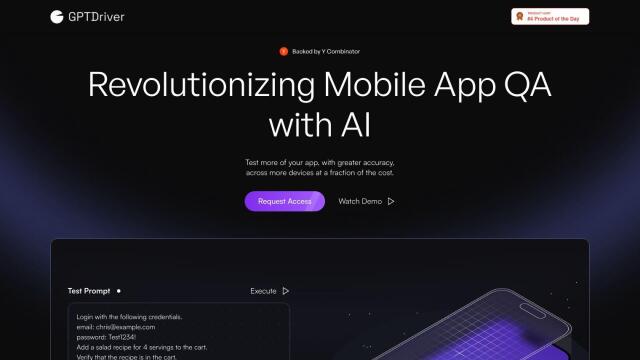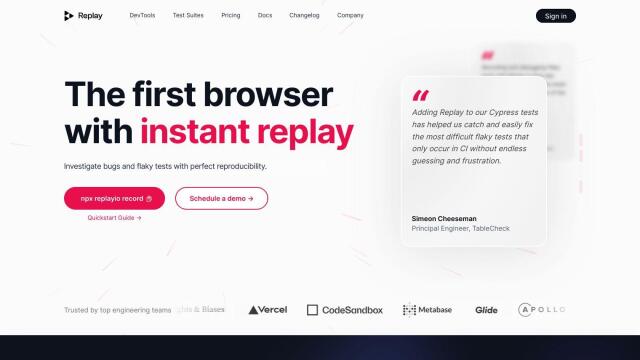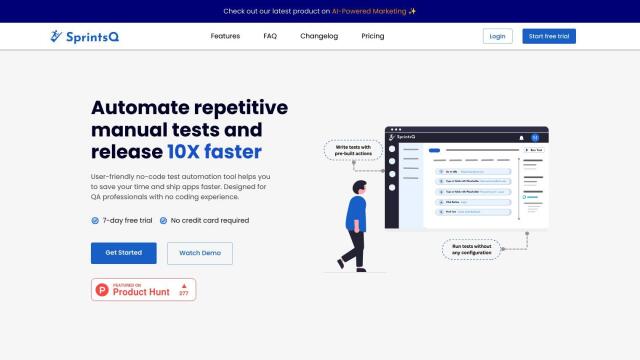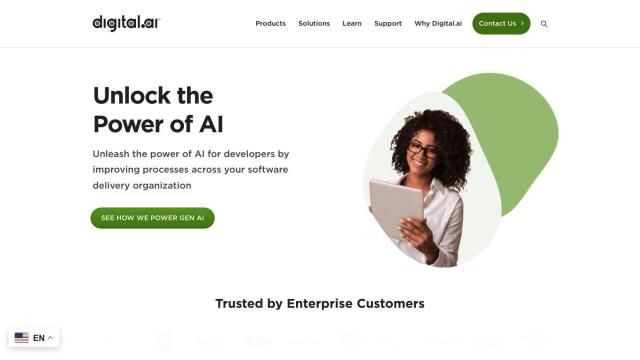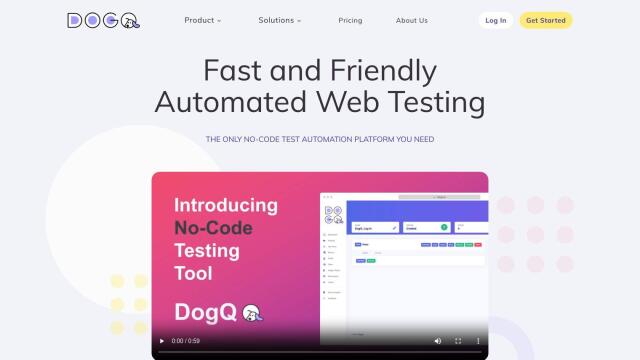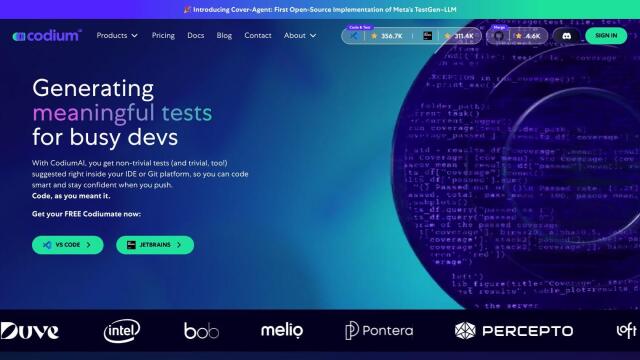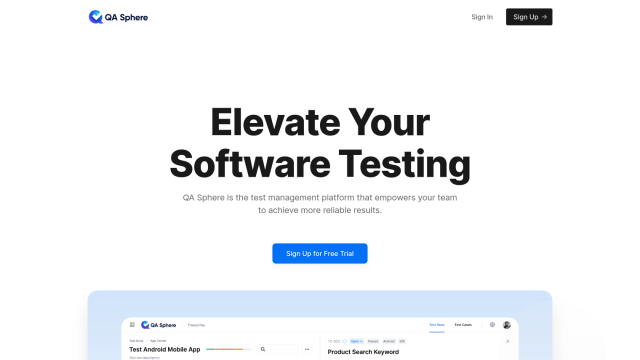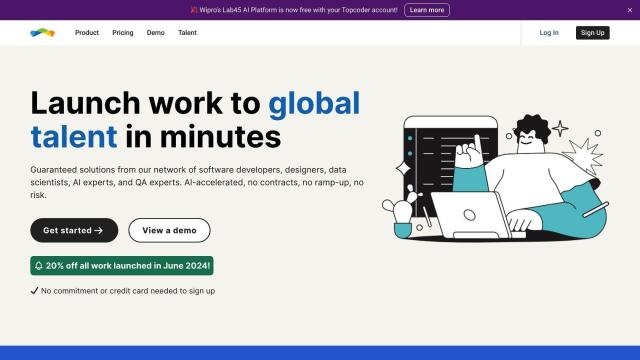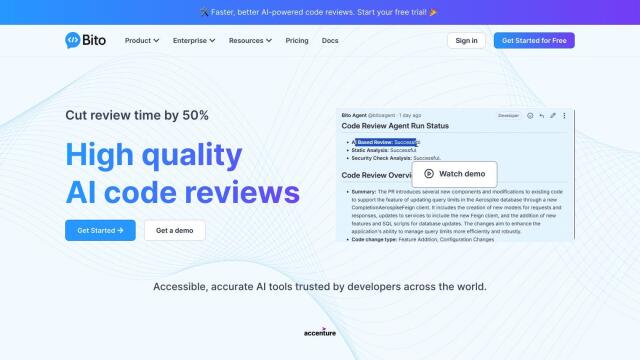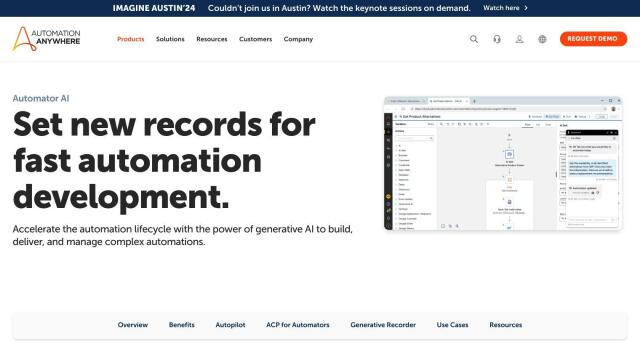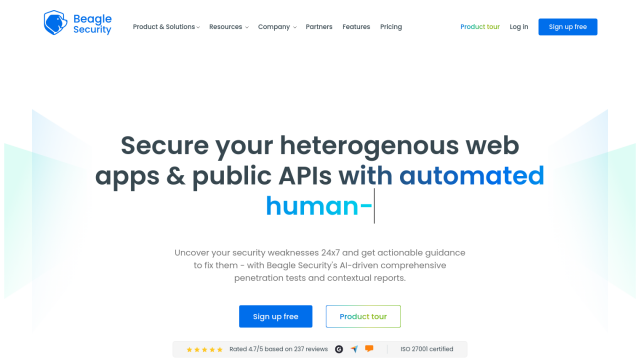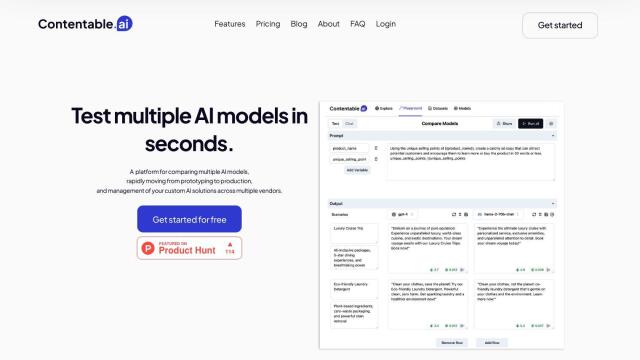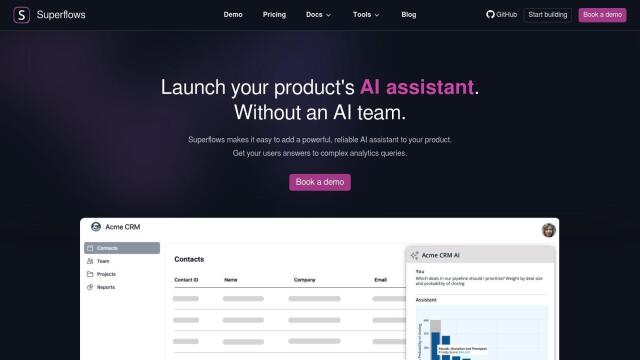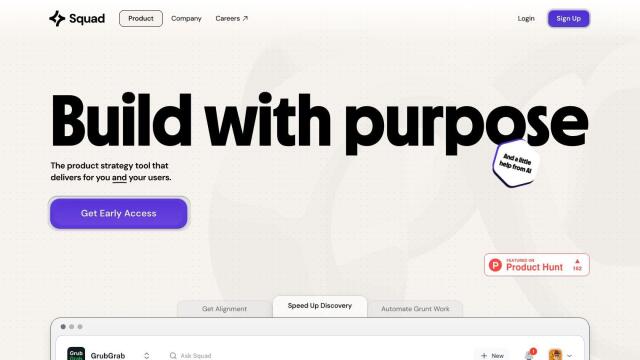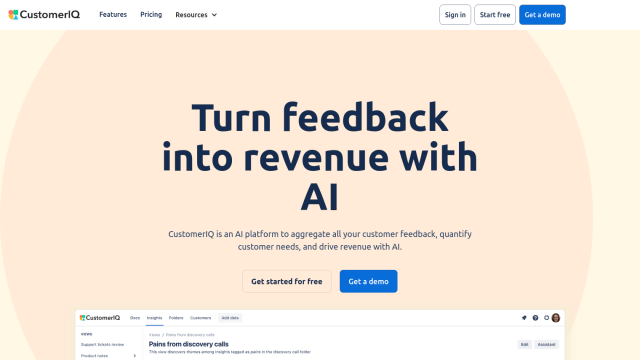Question: Is there an AI-powered testing tool that can help SaaS companies simplify user flows and scenarios without manual labor?

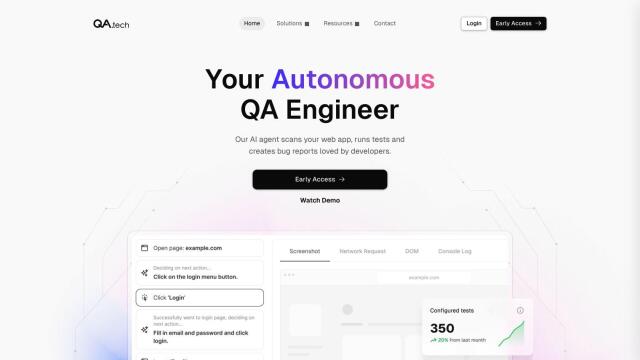
QA.tech
If you're looking for an AI-powered testing tool to automate user flows and scenarios without manual effort, QA.tech is a good choice. This self-service QA testing tool crawls web applications, runs tests and generates detailed bug reports. It offers customizable tests, automated feature discovery, real-time feedback and actionable bug reports. By integrating with CI/CD tools and sending immediate notifications, QA.tech enables SaaS companies to ensure software quality while freeing up time from manual testing chores.

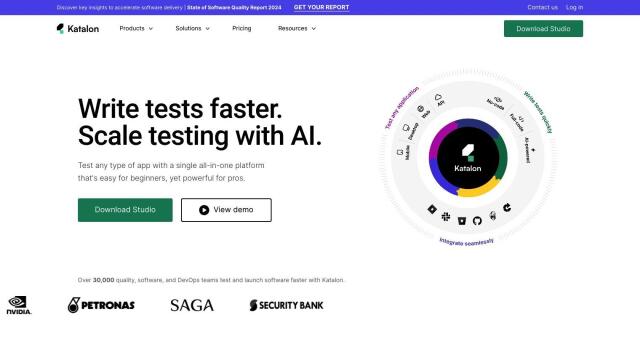
Katalon
Another good choice is Katalon, an end-to-end software quality management platform. Katalon has no-code test recording, drag-and-drop test objects and a flexible editor to make test creation easier. It can test web, mobile, API, desktop and packaged apps and can be integrated with popular CI tools like Jenkins, Azure DevOps and GitLab. Katalon's AI-powered tools, such as TrueTest for regression testing and StudioAssist for auto-generating code, can automate much of manual testing, letting teams get to market faster.

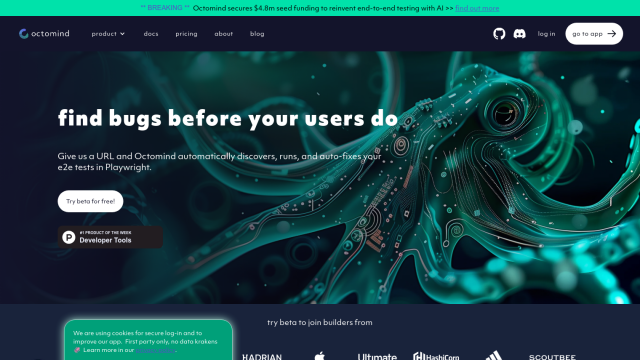
Octomind
For those who want a tool that automates test discovery, generation and execution, Octomind is worth a look. It runs Playwright tests to analyze applications, figure out important user flows and auto-generate test cases. Among its features are auto-fixing of test code and high-performance hosting with parallel test suite execution. Octomind integrates with GitHub, Azure, Jenkins and Vercel, so it's a good choice for those who want to ensure their CI/CD pipelines are robust and efficient.

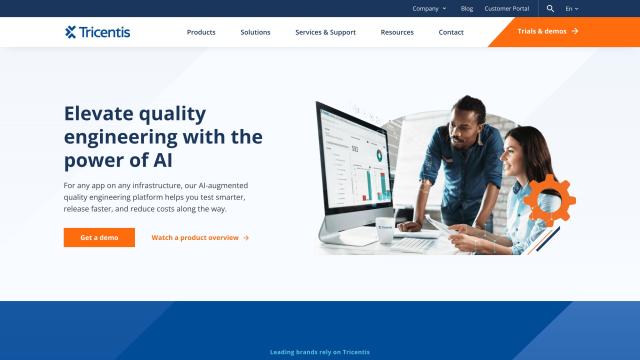
Tricentis
Last, Tricentis has a quality engineering platform that uses AI to accelerate software testing. It offers continuous testing for all applications and data processes, and it's flexible enough to accommodate different teams and systems. Tricentis Copilot brings generative AI assistants to the QA and development teams, promising faster test cycles and higher coverage. It's a good choice for companies that want to build testing directly into their delivery pipelines.

